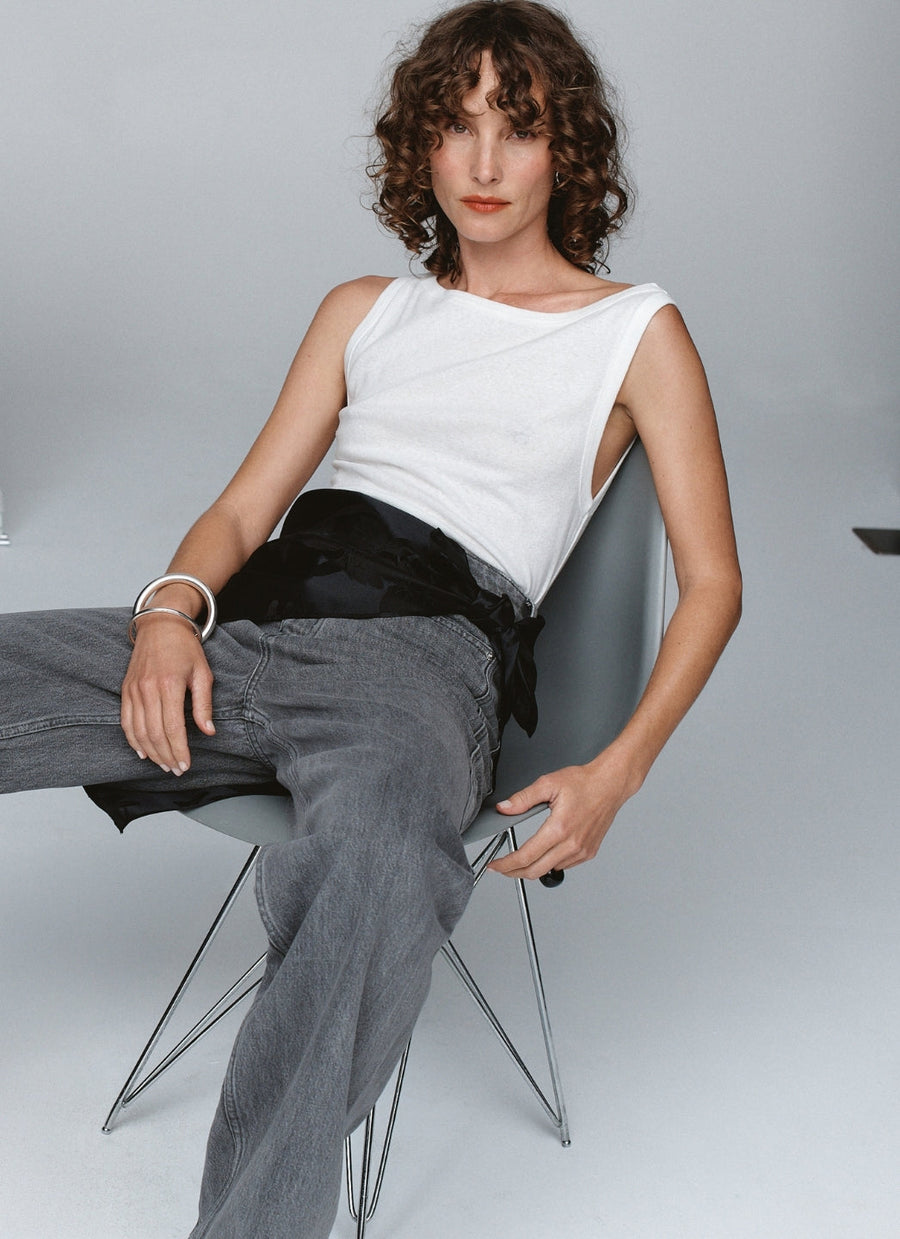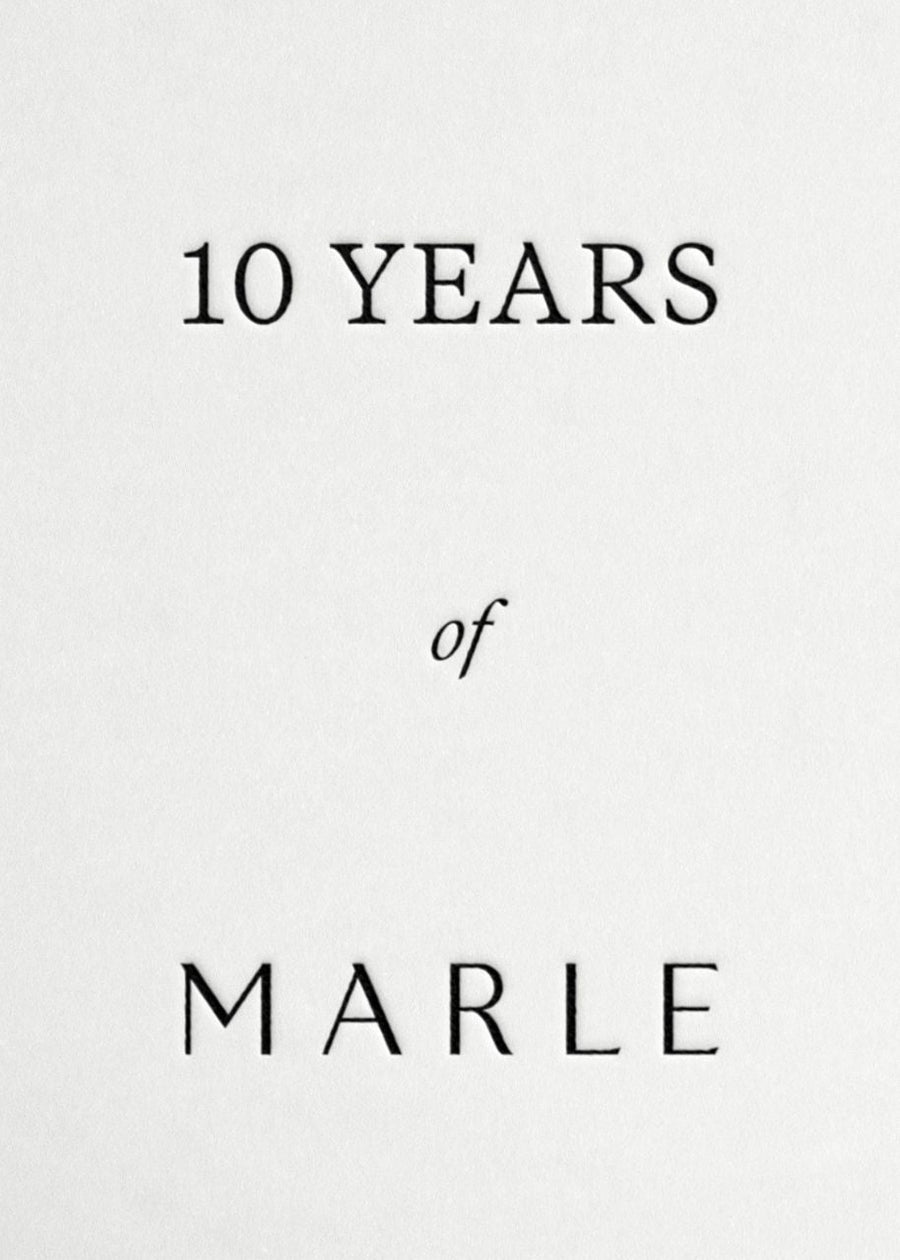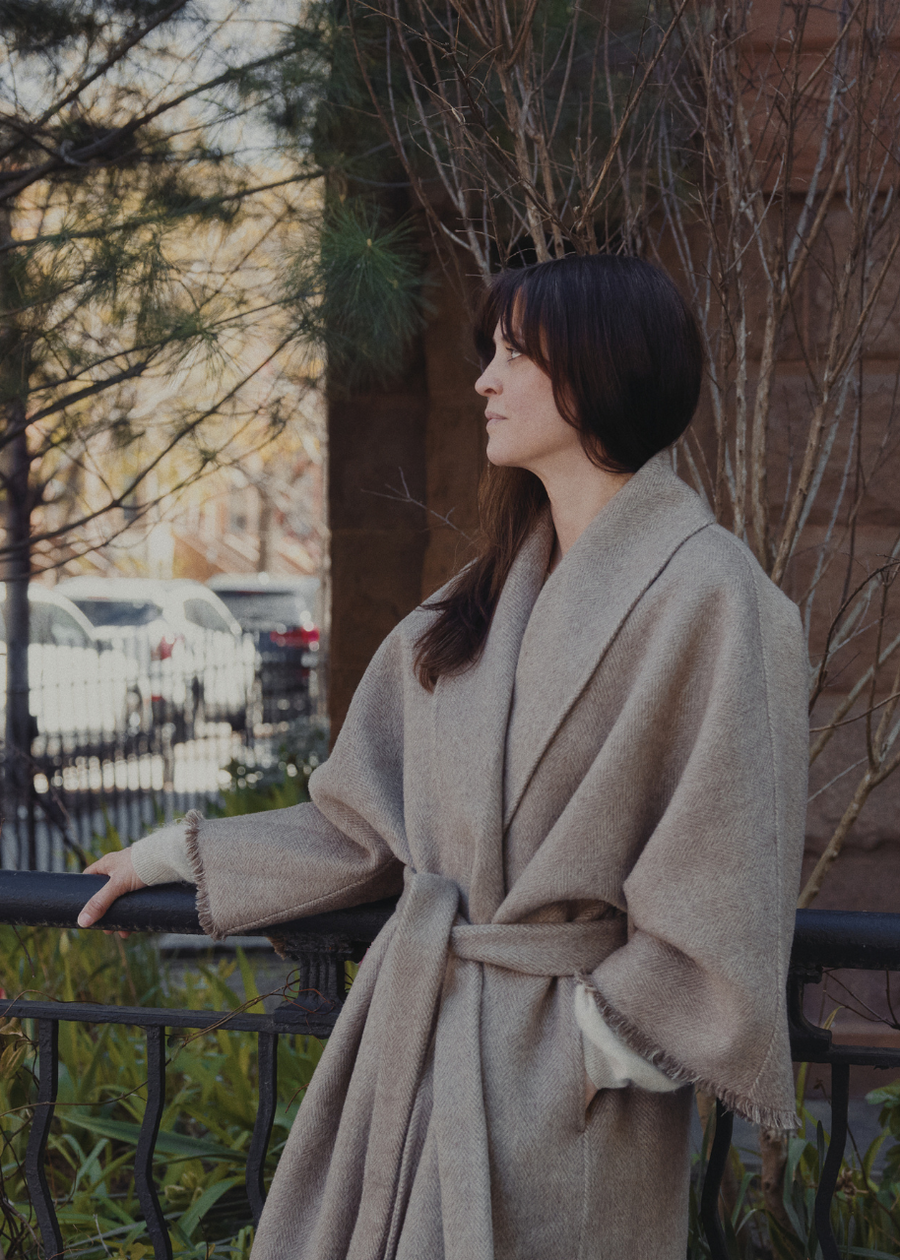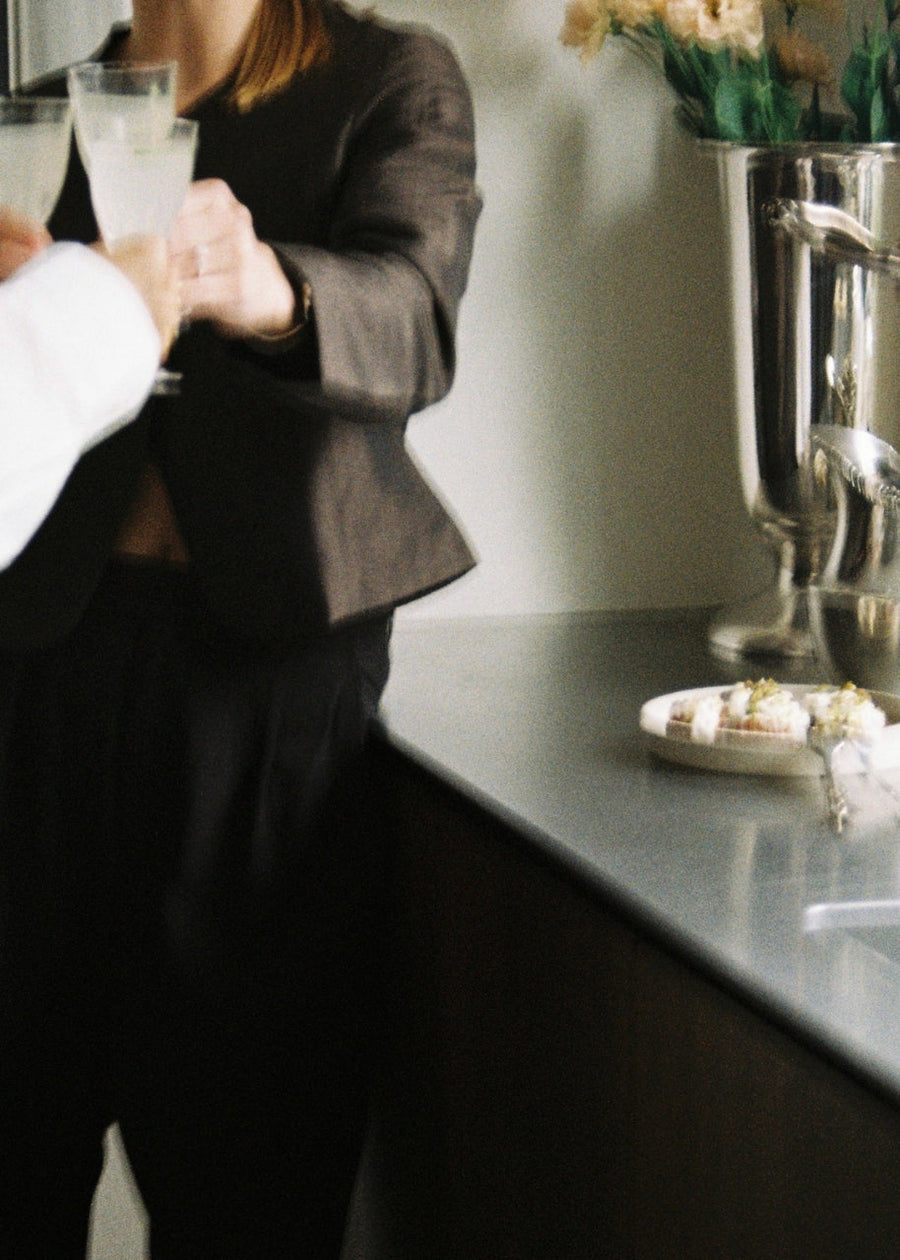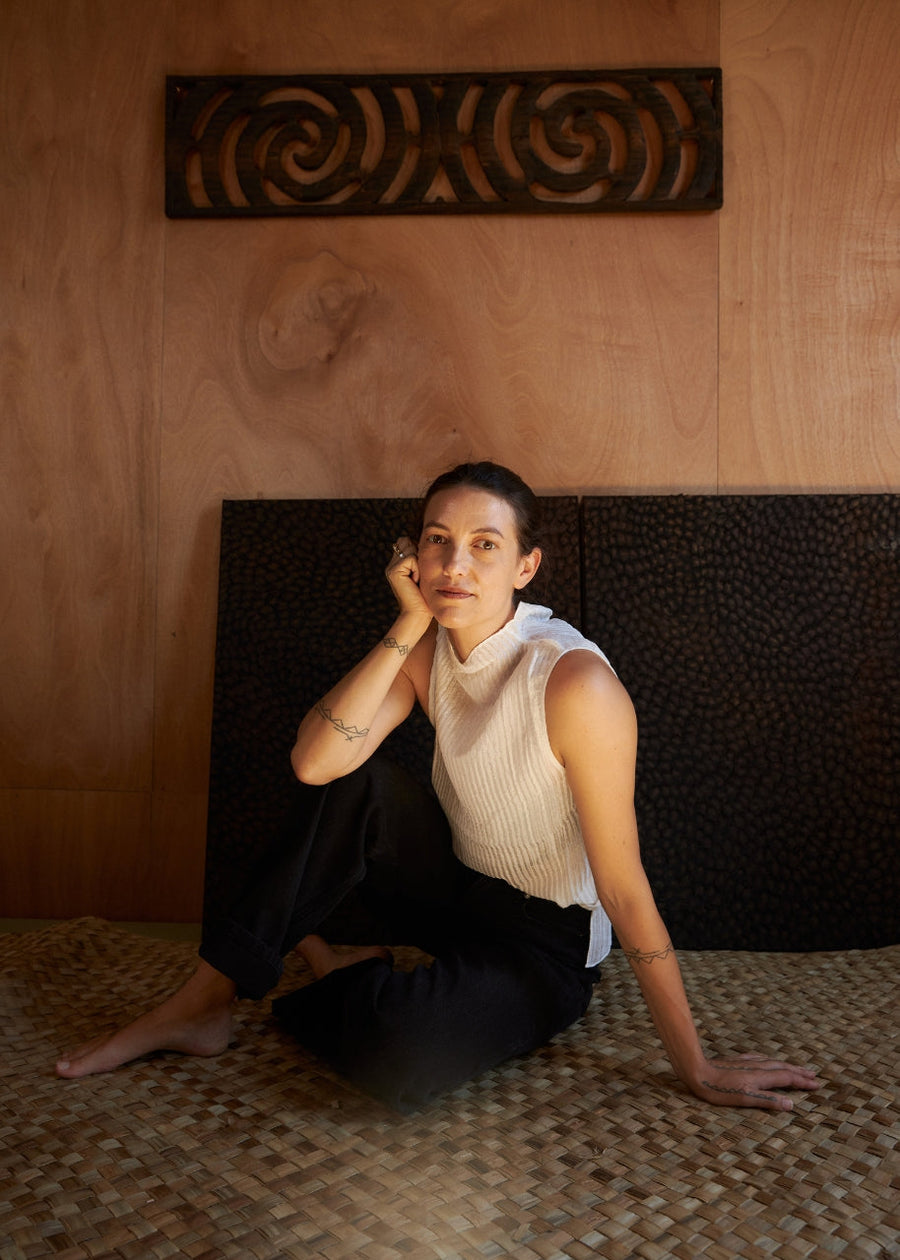
Maya Handley is founder of beloved subscription-based bread delivery service, Kōpiko, where each loaf is handmade at her bakery situated on an apple orchard in Oratia, Auckland. We love Maya’s unique business model of baking to order, which ultimately means no precious ingredients ever go to waste. Prior to Kōpiko, Maya was living in New York City and working as a photographer.
Here, we speak to Maya about her transition from life in New York City to Titirangi, her mindful business of baking, and how a connection to creating has inspired her journey with Kōpiko.
Please share a little bit about yourself - including your background, where you were raised, noting some of the defining aspects that have contributed to the woman you are today.
I was born and raised in Auckland, when I was 12, I moved with my family to Switzerland, as this is where my grandparents are from. I went to high school there - I think this move, perhaps at such a formative age, had a big impact on me. It made me quite adaptable and flexible but also, I realise now after my time in America that it unsettled my sense of place and home. I think in part my love of baking bread and producing food for others stems from my desire to place myself within the community and develop my sense of 'home'.
We are excited to hear more about Kōpiko. Tell us about the motivation behind your business?
While studying bread making, I learned what is essential to bake highly nutritious loaves: slow fermentation with sourdough culture and whole-grain flour. I wanted to bake the most nutritious loaves I could using traditional grains and make this bread available to our local community. I was keen to share what I'd learned about how sourdough fermentation significantly improves the nutritional value of bread and how important the flour we bake with is for the health of ourselves and our environment. So it's very important for me to use grain grown organically and locally, all of the flour we bake with comes from farmers in Canterbury who grow and store their grain without the use of chemicals.

|
"I love sharing bread I've made with people, and I love being able to start each day fresh, even if you've had a less than perfect bake day you wake up with a new chance to do it again and hopefully a bit better. This suits my personality as I don't get stuck in my mistakes, I feel a positive forward momentum with bread making" Maya Handley |
Tell us about what drew you to baking? What do you love about the process?
I have always loved making things with my hands, I moved for a year to the countryside in upstate NY and I had lots of time to experiment with bread baking. I love the constraint of using so few ingredients (flour, salt, water) to create quite complex loaves. I love sharing bread I've made with people, and I love being able to start each day fresh, even if you've had a less than perfect bake day you wake up with a new chance to do it again and hopefully a bit better. This suits my personality as I don't get stuck in my mistakes, I feel a positive forward momentum with bread making.
How has moving back to New Zealand been? What do you miss about New York? Have you learned something new about yourself from the change in environments?
I have found every move in my life pretty unsettling, and it takes me quite a while to feel comfortable in my new home. I thought moving back to NZ would be different, because for the most part, it's where I grew up, but it hasn't been that easy. Nearly 3 years on though, I'm settled and happy to be here - given Covid I feel really lucky we moved back when we did, but I do miss my friends in NY and also being closer to my siblings and their families. We're all really close, my sister is in London and brother in California - being here I feel less connected to their daily lives. The main thing I have been reminded of since moving back to NZ, is that our most challenging issues are not usually related to a specific place, they are more internal and require work no matter where we are living - they move around with us.

Before baking it was photography - is there a connection and have you always loved creating things?
I like working creatively (and repetitively) within defined parameters, bread making requires this in a similar way to photography, and I think this is why I enjoyed it from the start. Fundamentally It's just flour, water and salt and by observing small changes in process, time and temperature the results are extremely varied. It's very satisfying to make quite complex products with so few ingredients. It's also nice to be working as one part of a food system, where farmers are growing the grain using organic practices, milling specialists turning it to flour in small batches at low temperatures which preserves the gain's nutrients and then I get to directly bake bread for people - it's a relatively short chain but so much effort and care needs to go into each piece to create really good bread.
For Marle, fabrics are the most precious part of the design process. We love that your business model reflects that same respect and value for the ingredients you source. Tell us more about your no-waste model and what it means to you.
We try hard to limit our waste and to honour our precious raw ingredients. One way we do this is by baking most of our bread to order each week, therefore not ending up with excess loaves or wasting flour.Sourdough fermentation and the bran in our whole-grain flour extends the life of our loaves naturally, so our bread can be enjoyed for well over a week, we hope this contributes to less waste for our customers.We also use home compostable bread wraps and stickers and of course support organic farming practices which are not putting waste into the environment.Bread is one of the most wasted foods in NZ. Commercially, it's produced cheaply and has a relatively short shelf life, so if not sold or once stale it holds little value to supermarkets and customers and is easily thrown away. We are trying to remind people of the value of bread.

The rise in popularity of handmade small-batch, over anything mass produced could be viewed as a desire to get back to something more essential, tactile, and down-to-earth. Why do you think this consumer driven movement is occurring and what do you think it means for the future of your industry?
Bread is a great example of food fundamentally being altered by industrialisation.In the 1960's The Chorleywood Baking Process was developed in the UK and has become widely used globally for commercial bread making. It's a no-time dough system designed to modify the dough protein structure and improve its ability to stretch and retain gas during yeast fermentation in a short period of time. This is achieved by using dough conditioners, commercial baker's yeast and a high-speed mixing process.Yet time is fundamental to ensure bread holds nutritional value.High speed bread production completely shortcuts the slow sourdough fermentation that is essential to break gluten down into amino acids and unlock the nutrient potential in whole-grain flour - plus there is little time for yeast to pre-digest much of the sugar in the grain. The cost of bread has been significantly reduced because of industrialised technologies both in milling and baking, but we are now left with a product that holds little nutritional value.I think instinctively we feel good when we are able to connect with where our food is grown and who is making it. Tangibly we feel the benefits of eating food produced with care and without chemicals. I see a growing interest in locally produced bread and a growing understanding of the benefits of sourdough, so I feel really encouraged.
 |
 |
How would you describe your personal style? And how has it changed over the years?
My style is becoming more and more practical as I get older and spend more time at work! I definitely have some clothes at the back of my closet that haven't seen the light of day since moving back from NYC.
For all budding sourdough bakers - can you tell us a few tips you’ve learnt to master this particularly popular bake?
Stick with one dough formula for a while as it's hard to get to grips with what's going wrong if too many variables are changing at once. And while I'm all about whole grains it's not a bad idea to start with some white flour in your formula (you can purchase a biological white flour from biograins in Ashburton that has the bran sifted out but still retains the wheat germ, which holds the mineral and vitamin content). It's much easier to develop a strong dough without too much bran cutting away at the gluten structure and this will probably yield more satisfying results to begin with - and keep you encouraged. Also most people I know who bake bread started out with loaves like bricks (including me), but if you like it and stick with it - you will end up making beautiful bread, it just takes a little patience.
Tell us about a day in the life of Maya. What are the go-to Marle pieces you reach for?
I bake Tuesday- Sat, and sometimes Sunday when we have the Titirangi market. It's pretty cold at the moment and we start early so I'm loving wearing my Jo jumper, it's nice and warm but more importantly very lightweight and easy to move around in. It's one of the most comfortable sweaters I've worn. When I'm not baking I like to spend time gardening, I'm planning a new flower bed at the moment to grow more edible flowers for use at the bakery at the moment. I love to go out for dinner with my family and also visit Piha together.
Quickfire Questions
What is your most treasured object and why?If I think of one object I would be most sad to lose, it would be my wedding ring, for the exchange and commitment it symbolises on our wedding day. Favourite home cooked meal?At the moment I'm loving making Palak Paneer curry at home. Favourite fabrics to wear?Cotton and wool. Your non-negotiable daily rituals?Morning coffee and at the moment an evening bath after long cold baking days. Spring/ Summer or Autumn/Winter?Spring/Summer |
Maya wears the Lina Pant and Jo Jumper in Chestnut photographed by Yasmine Ganley


